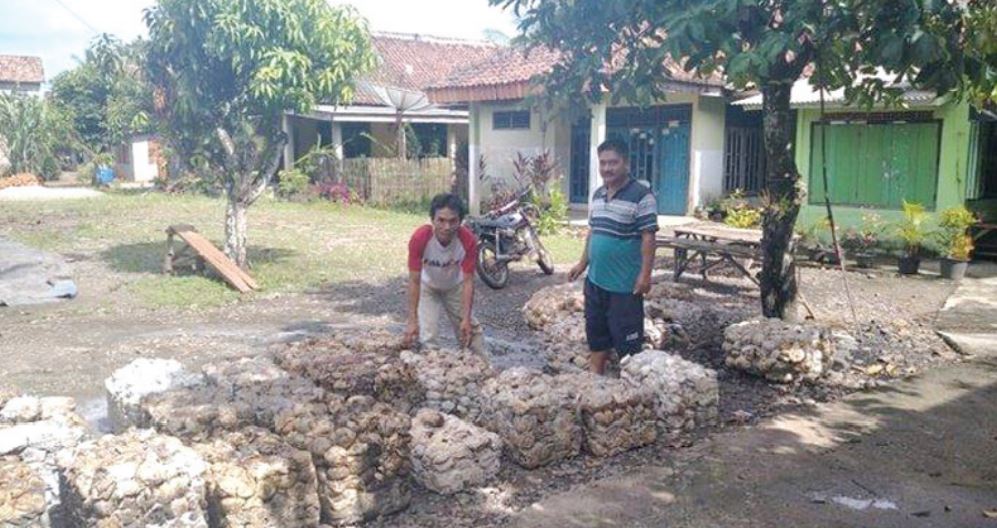May 17, 2023
Indonesia, Thailand, and Malaysia, which are members of the International Rubber Tripartite Council or ITRC, are committed to maintaining international natural rubber prices. Indonesia is also currently initiating the establishment of a regional rubber exchange.
Strengthening the position of rubber-producing countries in ASEAN, the three countries will continue to persuade Vietnam to join the ITRC and the International Rubber Consortium or IRCo. On the other hand, IRCo proposed additional capital of US$ 8.54 million to roll out various programs and activities for the 2024-2027 period.
A number of these points surfaced in the 2023 Dissemination of Analysis Results of the Trade Policy Agency (BKPerdag) “Strengthening Trade Policy Implementation to Encourage Improved Trade Performance,” which was held in a hybrid manner Wednesday (17/5/2023). The event also presented the results of an analysis entitled “Support Costs and Benefits of Indonesia’s Participation in IRCo.”
Head of the Trade Policy Agency (BKPerdag) of the Ministry of Trade Kasan Muhri, Wednesday (17/5/2023), said, until now, the ITRC, which consists of Indonesia, Malaysia, and Thailand, continues to keep world rubber prices from falling. This is done through the Agreed Export Tonnage Scheme (AETS) or a mechanism to reduce rubber exports based on export allocation.
According to Kasan, the scheme is oriented to the rubber export business and the welfare of rubber farmers in each ITRC rubber-producing country. For Indonesian rubber farmers, rubber trees are like automated teller machines. Rubber farmers would come to the rubber trees whenever they needed money to tap rubber latex.
Apart from maintaining rubber prices, continued Kasan, Indonesia is also initiating to establish regional rubber exchanges in the rubber-producing countries. The three largest rubber-producing countries today are Thailand, Indonesia, and Vietnam. So far, rubber markets have been led by several non-rubber-producing countries or those with small rubber production, namely Singapore, China, and Japan. This makes the bargaining position of the largest rubber-producing countries less strong because market influence is still dominant.
Therefore, Kasan added, AETS was formed. When world rubber prices fall due to market influences, the ITRC will reduce rubber exports to recover world rubber prices. The reduction in rubber exports was offset by the absorption of rubber in the country to support the construction of roads, port bearings, dams, and bridges.
According to Kasan, Indonesia, Malaysia, and Thailand are still trying to get Vietnam to join the ITRC and IRCo further to strengthen rubber-producing countries’ bargaining power. Vietnam is the second-largest rubber-producing country in the world. So far, when world rubber prices have fallen, Vietnam has done nothing to raise rubber prices. Indonesia, Malaysia, and Thailand are reducing rubber exports to stabilize the price again.
Vietnam, said Kasan, had submitted an initial proposal to join the ITRC and IRCo. However, when invited to a meeting at the ministerial level of rubber-producing countries, Vietnam did not attend. Indonesia, Malaysia, and Thailand are still trying to persuade Vietnam to join. Trade Facilitator of BKPerdag International Trade Policy Center Annisa Aulani Kusnadi added that currently, Indonesia, Malaysia, and Thailand, members of the ITRC, control about 60% of the world’s rubber stocks. The four countries can control around 70-75% of the world’s rubber stocks by joining Vietnam.
Director of the Center for World Trade Studies (PSPD) Gadjah Mada University, Yogyakarta, Riza Noer Arvani, said rubber is one of Indonesia’s strategic commodities. Therefore, the role of Indonesia, together with other rubber-producing countries in the global arena, needs to be strengthened. The ITRC should be able to play an important role, like the Organization of the Petroleum Exporting Countries (OPEC). The ITRC is expected to be able to control stocks and, at the same time, become a determinant of world rubber prices.
According to Riza, Indonesia, and the ITRC also need to rearrange the upstream and downstream of rubber to face the European Union’s Free Deforestation Law (EUDR). The reason is that the regulation also stipulates that rubber and its derivative products must meet the requirements of a deforestation-free due diligence to enter the European Union market.
Indonesia and the ITRC also need to rearrange the upstream and downstream of rubber to face the EUDR. The reason is that the regulation also stipulates that rubber and its derivative products must meet the requirements of a deforestation-free due diligence to enter the European Union market.***
source: Kompas

